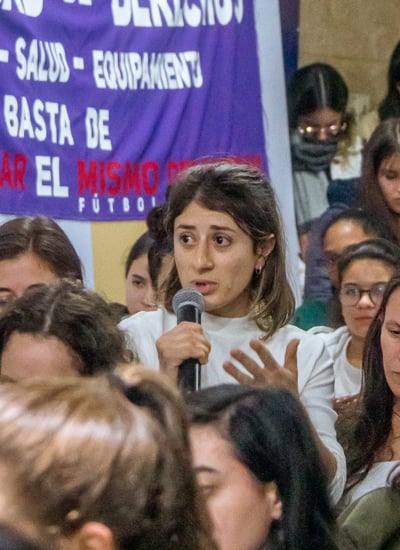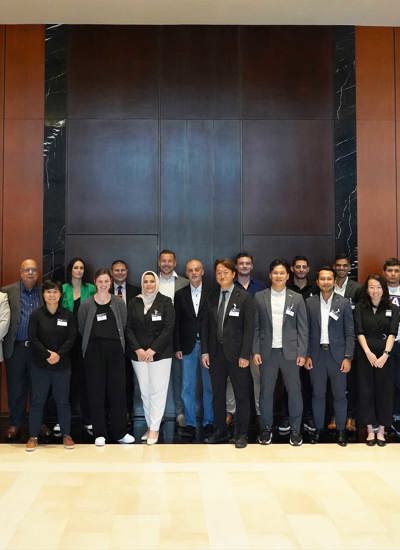
- 1,100 women’s first division footballers were surveyed from Argentina, Chile, Colombia, Paraguay, Peru, Uruguay and Venezuela
- The survey focused on specific working conditions, harassment situations, mental health and more
- "We’re concerned about the data, especially in terms of infrastructure, health and harassment," says FIFPRO Vice President and ANJUFF Director Camila Garcia
FIFPRO South America has presented the South American Women's Football Study 2023, an unprecedented research based on 1,100 surveys of first division players from Argentina, Chile, Colombia, Paraguay, Peru, Uruguay and Venezuela.
The work, called #NosotrasJugamos (WePlay), was carried out in collaboration with the players’ domestic unions, ANJUFF – the Chilean women’s player union, and the Faculty of Economics and Business at the University of Chile.
The research focused on women’s players in the region to hear their feedback on working infrastructures, the relationship with their clubs, health benefits, harassment, mental health, and more.
"A study like this has never been done before in South America," said FIFPRO Vice President and ANJUFF Director Camila Garcia. "In any case, we’re concerned about the data, especially in terms of infrastructure, health and harassment.
“The call is to work together with CONMEBOL and the federations. The spirit of this study is to be a call to action and generate a dialogue to create changes and a more professional environment for players.”
Gamadiel Garcia, secretary general of FIFPRO South America, added: "This study is relevant for the unions to have a document full of knowledge, data, percentages and references to take action and bring the negotiations of each union or association to a position of balance.”




The results show that, despite the progress made in recent years in South American women's football, there is still a long way to go in all the areas investigated.
Only 24 percent of players surveyed dedicate themselves exclusively to full-time football, while the remaining 76 percent are employed or study elsewhere. In terms of remuneration, 49 percent receive a salary equal to or less than the legal minimum wage and 27 percent receive no remuneration for playing football.
In addition, 25 percent do not have showers and hot water in their training facilities.
In terms of health, 21 percent of the players do not have health insurance, 33 percent do not receive any from their club and 27 percent had to pay for their own recovery from various injuries.
"There is a lot of diversity within the region, which is why we are calling for the creation of minimum standards of conditions, both in international competitions and local tournaments, to make them more appealing, so that we can attract the private sector and generate a circle of professionalism," said Camila Garcia.
#NosotrasJugamos: South American Women's Football Study 2023

Sexual harassment and gender-based violence
Consultations on safety in the work environment elicited worrying responses in relation to sexual harassment, discrimination and gender-based violence.
Seventy-three percent of women’s players surveyed said they had been victims of sexual harassment at some point in their sporting career. Forty-two percent were afraid of being harassed and 36 percent had witnessed sexual harassment.
Overall, 85 percent experienced gender discrimination in their career and 40 percent feel that football promotes gender-based violence. In addition, 71 percent believe that there are discriminatory practices in benefits or remuneration.
Conclusions
The study concludes that to achieve "concrete progress" the following aspects need to be addressed:
- Establishing minimum standards for national tournaments
- Improving and expanding regional club competitions
- Restructuring the qualification process for the FIFA World Cup and the Olympic Games
- Generating professionalisation standards and greater visibility incentives for women's national teams
- Moving towards gender equality in conditions and financial incentives
- Promoting collective bargaining to strengthen women's football in South America


